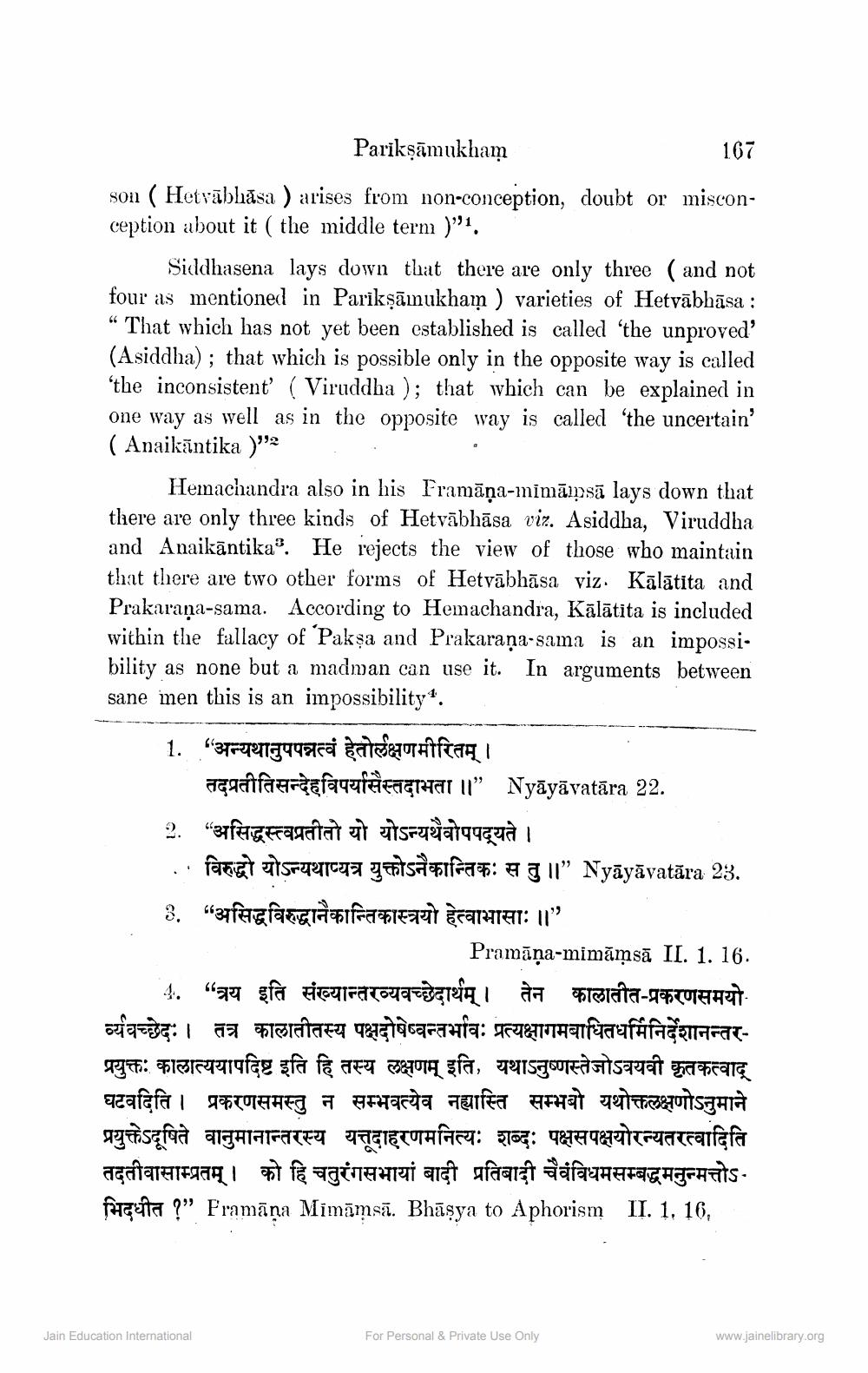________________
Parikṣāmukham
son ( Hetvābhāsa ) arises from non-conception, doubt or misconception about it ( the middle term ) "1.
66
Siddhasena lays down that there are only three (and not four as mentioned in Parikṣamukham) varieties of Hetvābhāsa: That which has not yet been established is called 'the unproved' (Asiddha); that which is possible only in the opposite way is called 'the inconsistent ' ( Viruddha ) ; that which can be explained in one way as well as in the opposite way is called 'the uncertain' (Anaikantika )"2
Hemachandra also in his Framaņa-mimāsā lays down that there are only three kinds of Hetvābhāsa viz. Asiddha, Viruddha and Anaikantika". He rejects the view of those who maintain that there are two other forms of Hetvabhāsa viz. Kālātīta and Prakaraṇa-sama. According to Hemachandra, Kālātita is included within the fallacy of Pakṣa and Prakaraṇa-sama is an impossibility as none but a madman can use it. In arguments between sane men this is an impossibility1.
1. “ अन्यथानुपपन्नत्वं हेतोर्लक्षणमीरितम् ।
तदप्रतीतिसन्देह विपर्यासैस्तदाभता ॥” Nyāyāvatāra 22.
167
2. " असिद्धस्त्वप्रतीतो यो योऽन्यथैवोपपद्यते ।
विरुद्धो योऽन्यथाप्यत्र युक्तोऽनैकान्तिकः स तु ||" Nyāyāvatāra 23.
8. “असिद्धविरुद्धानैकान्तिकास्त्रयो हेत्वाभासाः ॥ "
Pramāna-mīmāmsā II. 1. 16.
4. " त्रय इति संख्यान्तरव्यवच्छेदार्थम् । तेन कालातीत प्रकरणसमयोर्व्यवच्छेदः । तत्र कालातीतस्य पक्षदोषेष्वन्तर्भावः प्रत्यक्षागमबाधितधर्मिनिर्देशानन्तरप्रयुक्तः कालात्ययापदिष्ट इति हि तस्य लक्षणम् इति यथाऽनुष्णस्तेजोऽवयवी कृतकत्वाद् घटवदिति । प्रकरणसमस्तु न सम्भवत्येव नह्यास्ति सम्भबो यथोक्तलक्षणोऽनुमाने प्रयुक्तेऽदूषिते वानुमानान्तरस्य यत्तूदाहरणमनित्यः शब्दः पक्षसपक्षयोरन्यतरत्वादिति तदतीवासाम्प्रतम् । कोहि चतुरंगसभायां बादी प्रतिबादी चैवंविधमसम्बद्धमनुन्मत्तोऽभिदधीत ?” Framāna Mimāmsã. Bhāsya to Aphorism II. 1. 16,
Jain Education International
For Personal & Private Use Only
www.jainelibrary.org




